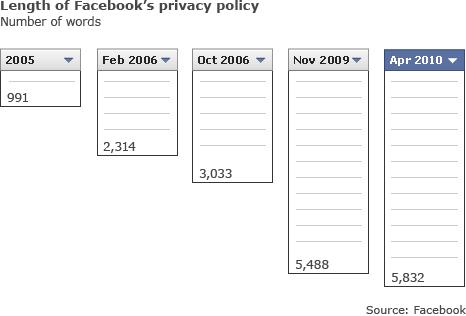Facebook reveals 'simplified' privacy changes
- Published
Social network Facebook has said it will offer a one-stop shop for privacy settings in response to user concerns.
Facebook founder Mark Zuckerberg admitted the settings had "gotten complex" for users.
It follows a storm of protest from users over a series of changes on the site that left its members unsure about how public their information had become.
"We needed to simplify controls," he told a press conference.
"We want people to be able to share information in the way that they want," he told BBC News.
"Our goal is not to make your information more private or more open."
The new system will offer users one privacy page with a list of all their applications and a choice of three settings for each.
The redesigned privacy page allows users to see all their information in one grid and apply privacy settings to each. Facebook will suggest defaults.
As with the changes made in December, users will be able to choose to share their applications with just friends, friends of friends or everyone.
"We've focused on three things: a single control for your content, more powerful controls for your basic information and an easy control to turn off all applications," said Mark Zuckerberg, speaking at Facebook's Palo Alto headquarters.
People who want more "granular control" will still be able to access existing settings.
Facebook has also reduced the amount of information that is visible to everyone. People will now be able to control who sees their interest pages and friends lists.
Users will also be able to turn off applications to ensure no information is shared without consent.
One of the things users found complicated was the need to apply new settings to every new feature introduced on the site.
From today, whatever setting users choose for "Sharing on Facebook" will now automatically be applied to any new products.
Initial reactions to the changes questioned whether Facebook had gone far enough.
Big battle
"The vast majority of people don't use privacy settings so the reforms are not likely to have as great an impact," said Simon Davies, director of Privacy International.

The site has had to make changes to its privacy policy before
"If the default is for less information then we've really made a step forward," he said.
With European privacy commissioners calling for companies to set defaults for the minimum sharing of information, the big battle could be "yet to come", he warned.
"That's where the rubber hits the road at a legal level."
Andrew Walls, a research director at analyst firm Gartner wondered how the changes would affect Facebook's business model.
"Some questions not really answered were issues around the sharing of personal data with advertisers for doing targeted ads based on profile content. That's a tricky one - how do you make money if you can't sell targeted ads? How do you compete with Google?"
"They want sufficient privacy to attract users into service and take advantage of it but some sharing of data is also required in order for Facebook to make money," he said.
But Mr Zuckerberg told BBC News that it was a "misconception" that the site relied on people sharing information to make money from adverts.
"No information is sold to advertisers. For the business part of Facebook, it makes no difference what your privacy settings are."
Mr Zuckerberg said that developers had "worked weekends, camped out in the conference centre" in order to overhaul its privacy settings.
"The number one thing we've heard to that the settings have gotten complex and hard for people to use," he said.
"It is something we take very seriously," he added.

He spent time explaining how Facebook has evolved from a very basic system when it was launched in 2004 to the 400m user site it is today.
"When we started Facebook, we built it around a few simple ideas. People want to share and stay connected with their friends and the people around them. When you have control over what you share, you want to share more. When you share more, the world becomes more open and connected," he said.
But since then the site has rolled out hundreds of new features and, alongside them, a raft a privacy settings.
Changes made to the site earlier this year and in December 2009 infuriated users and led to formal complaints from privacy groups.
The European Commission described the changes as "unacceptable".